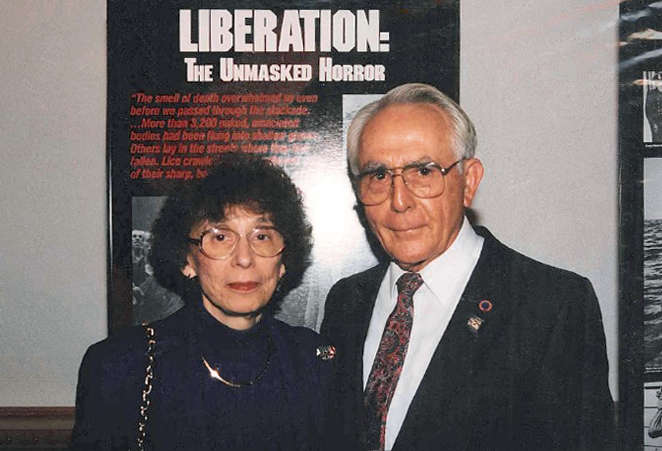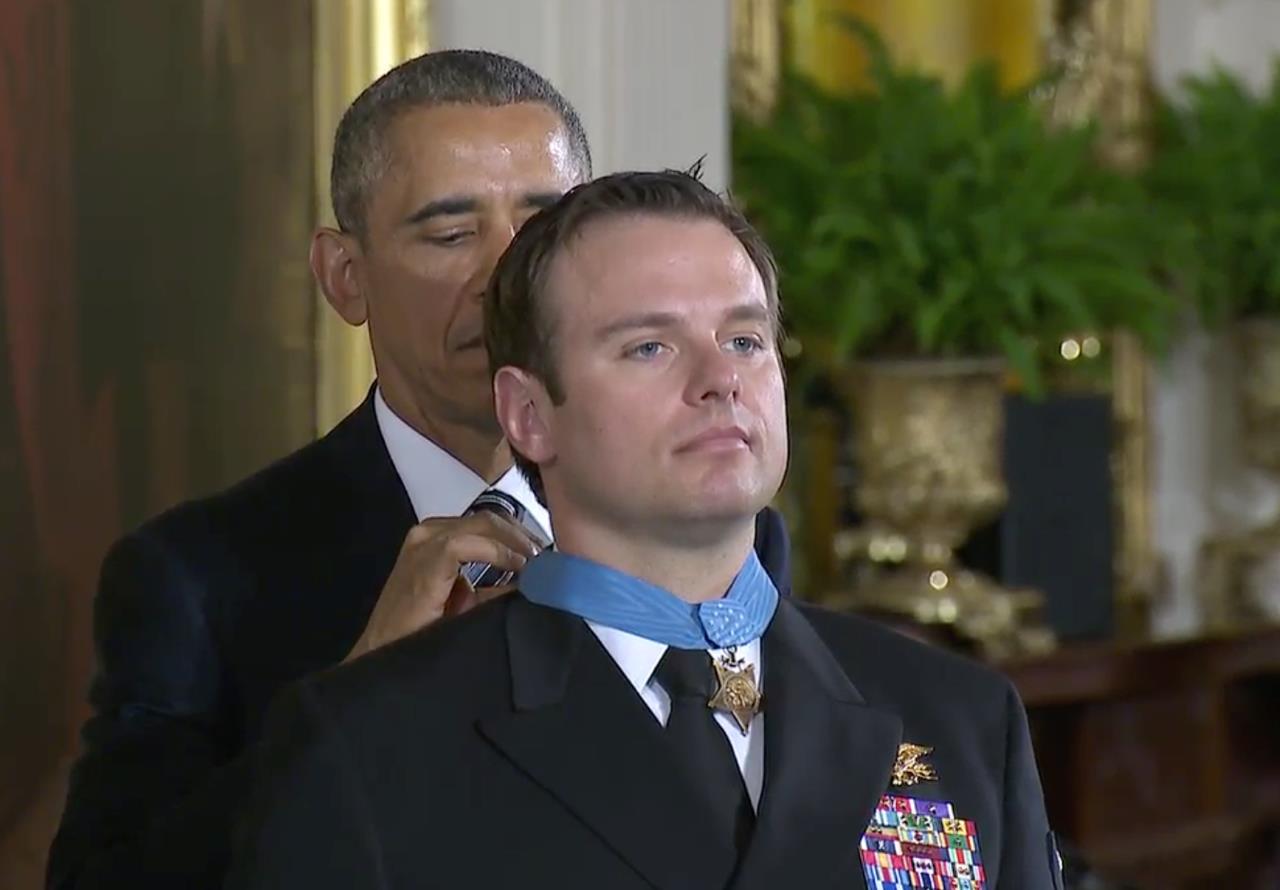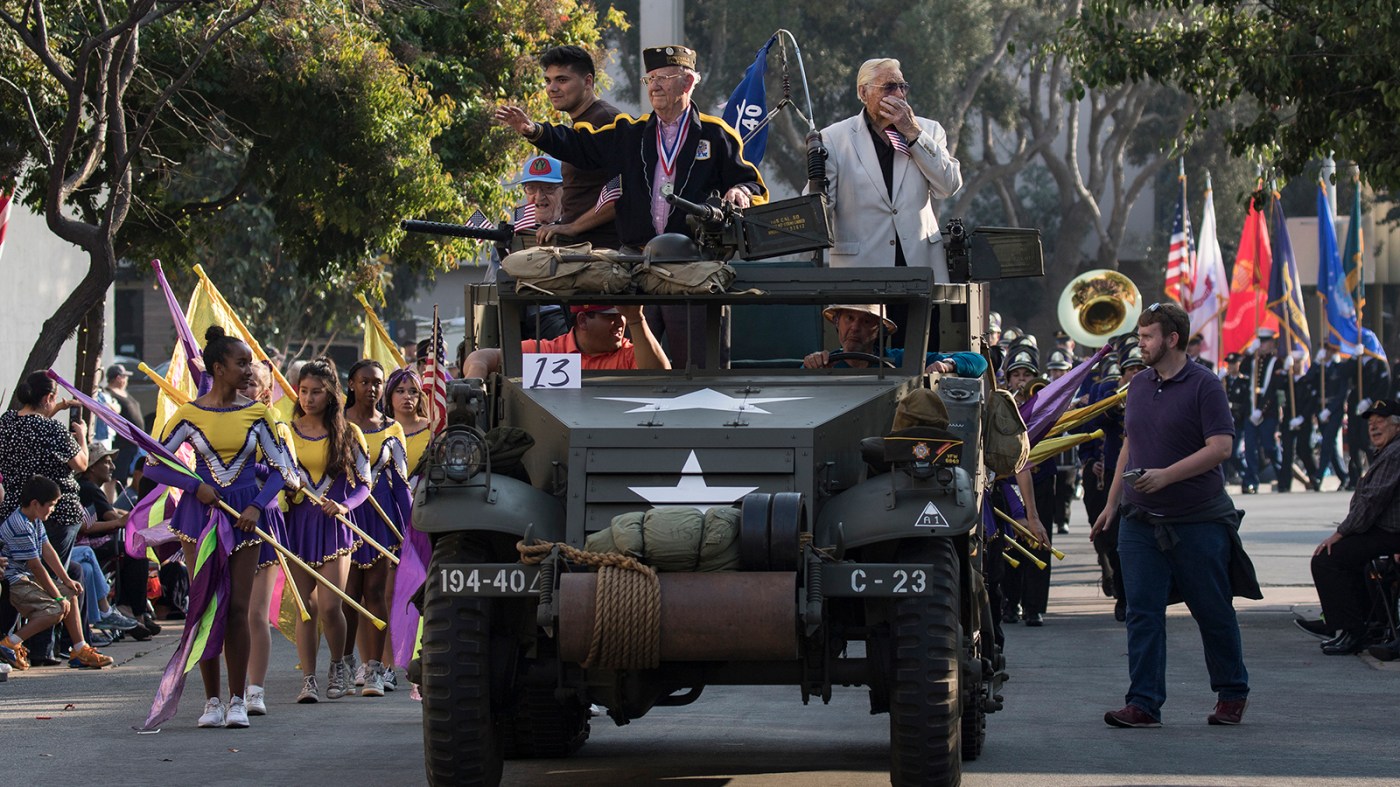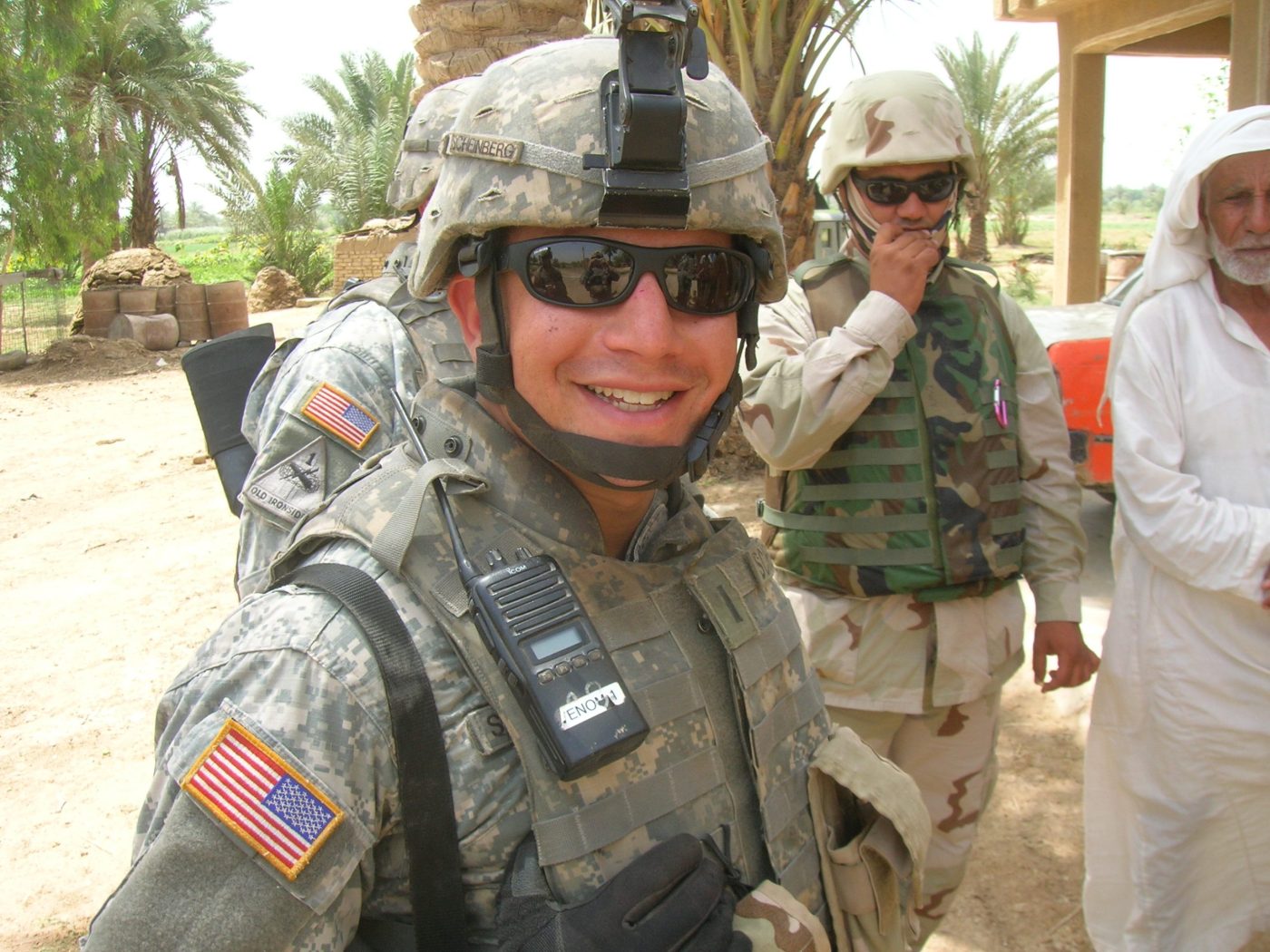For nearly four decades, Al Ungerleider dedicated his life to serving his country. He was an infantry officer who saw active combat in World War II, the Korean War, and the Vietnam War, rising to the rank of brigadier general.
Ungerleider experienced a lot during his years in the military, including a landing amid the chaos on Omaha Beach on June 6, 1944. But nothing stirred his emotions like what crossed before his eyes in the waning days of World War II. At the time, U.S., Soviet and British forces were liberating Nazi concentration camps in Europe as Germany was close to surrendering, bringing to life the horrors of Adolph Hitler’s “Final Solution” to exterminate the Jewish people. The liberators saw emaciated corpses piled on top of each other and skeletal camp survivors, and they could smell the stench of death.

Al Ungerleider (second row, farthest left, kneeling) landed on Omaha Beach on D-Day commanding Company L of the Third Battalion of the 115th Regiment of the 29th Division. This photo shows other commanders in the Third Battalion.
Army 1st Lt. Ungerleider, who died in 2011 at age 89, commanded Company I of the Third Battalion of the 115th Regiment, which separated into advance parties to scout routes and bivouac areas in central Germany. Ungerleider’s party came upon the Dora-Mittelbau concentration camp, the center of a vast network of forced labor camps in the Harz Mountain region. Prisoners at Dora-Mittlebau constructed large factories for the V-2 missile program and other experimental weapons.
Upon entering the camp 75 years ago on April 11, 1945, Ungerleider witnessed a level of cruelty that is “burned into my brain and my soul like nothing else in my life,” he said in a 1993 interview. “My men and I smashed through the gates and witnessed the site of dead bodies, of human beings in the worst state of degradation. There was absolute horror in what we saw. Then we asked, `What can we do to help?’”
`Literally starving to death’
Ungerleider, who was Jewish, spoke Yiddish to the survivors in the camp and grouped them together to recite the Kaddish, the Jewish prayer to mourn the dead. Prior to the liberation, the Nazis had evacuated most of the prisoners at Dora-Mittlebau to the Bergen-Belsen camp in northern Germany to hide them from allied forces. Thus, only a few hundred prisoners remained at the camp, which once held as many as 12,000 by the time the Americans arrived.
“He and his unit were totally unprepared for what they found because they had no knowledge of the concentration camps,” said Ungerleider’s son, Neil Ungerleider. “The survivors were literally starving to death.”
Neil Ungerleider explained that his father spoke with German citizens who lived in the nearby towns and villages and who claimed ignorance of the atrocities. He said to them, `Go back and bring these people food,’” Neil Ungerleider said. “He threatened to imprison them if they didn’t do it, but they did. They brought them food.”
The Americans appeared to encounter minimal resistance as they scoured the camp. At one point, Al Ungerleider and Army Pfc. Billy Melander went to a building and found 10 crematorium ovens with the doors closed. Edward Burke, the captain of a tank destroyer battalion that accompanied Ungerleider’s unit in the assault on the camp, provided an account of what happened next:
Ungerleider told Billy to bring his M1 Rifle ready to fire as he opened the doors,” Burke once said. “Doors one, two, three and four were empty. Ungerleider said as he approached door five he felt a tingle all through his body. As he opened the door, there was a German trooper with a Luger pistol aimed at them. Fortunately, Billy was faster on the trigger, and he pumped eight shots into the German as fast as he could pull the trigger.”
Nightmares from what he witnessed
Like Al Ungerleider and his unit, many Americans were unaware of the German atrocities toward the Jews. Nearly 6 million Jewish people were murdered in Nazi concentration camps from 1939 to 1945 in what is known as the Holocaust.
Neil Ungerleider said his father experienced nightmares as a result of what he witnessed at Dora-Mittlebau. “This one traumatic event stuck with him for the rest of his life. He was able to cope very well with his war experiences, except for this one thing.”
Nearly a year before liberating the camp, Al Ungerleider led 50 men from the 115th Regiment ashore at Omaha Beach on the morning of June 6, 1944. They were in the second wave of U.S. troops who hit the beach in the Normandy invasion along the northern coast of France. The invasion changed the course of the war by leading to the Allied liberation of Western Europe from Germany’s control. “Being in the second wave, he didn’t experience the kind of slaughter that those who went in first did,” Neil Ungerleider said, “which doesn’t make it any less dangerous or any less heroic in terms of what he and his men did. But he did have close calls during the war.”
`He was a patriot’
Al Ungerleider was not wounded during the landing. But he suffered injuries not long after from shrapnel in France. The first wound to his arm wasn’t that serious. He was treated at a hospital in France before returning to combat. A wound to the leg was more serious. He was evacuated to England for treatment and returned to battle.
On June 6, 1994, the 50th anniversary of the Normandy invasion, Ungerleider was chosen to escort President Clinton for a wreath laying at the iconic site. Ten years later, he was one of 100 American Veterans who returned to Omaha Beach for the 60th anniversary. They received the French Legion of Honor, the oldest and highest honor in France.
In his distinguished military career, Ungerleider also commanded military bases in Korea and Vietnam. He was a three-time recipient of the Bronze Star, which is awarded to members of the military for heroic achievement, heroic service, meritorious achievement or meritorious service in a combat zone.
Over the years, Ungerleider remained modest about his recognition and service to his country. “He was a patriot who loved his country and did his duty,” Neil Ungerleider said. “After Pearl Harbor, my father enlisted because, as he put it, `We were all going. No one ever thought not to go.’ In his mind, he was doing nothing beyond what everyone else was doing. He never thought of himself as unique or special. The value he instilled in his children was this: Work hard, do your best and be modest about what you achieve. I cannot think of a better description of how he lived his life.”
Topics in this story
More Stories
VA recently developed a pilot program providing direct and specialized assistance for the 65 living Medal of Honor recipients nationwide.
This year, Veterans Day ceremonies recognized by VA will be held in 66 communities throughout 34 states and the District of Columbia to honor the nation's veterans.
A personal reflection on generational service from VA Deputy Assistant Secretary Aaron Scheinberg.








Amazing article….thank you to all that served. I believe I recognize my grandfather in the group photo…his name is Paul E. Michaels. I recall him describing the stench of the camps. My grandfather was a very wonderful man…honest, brave and kind. I only wish I could hear him describe his experience again. These men are heroes… changed our world for the better.
Please email me with more information about your grandfather, Paul E. Michaels. My email is Michael.richman1@va.gov.
It was a pleasure serving with him at Aberdeen Proving Grounds when he was the Post CO. in the “70”s.
“Lest We Never Forget…”